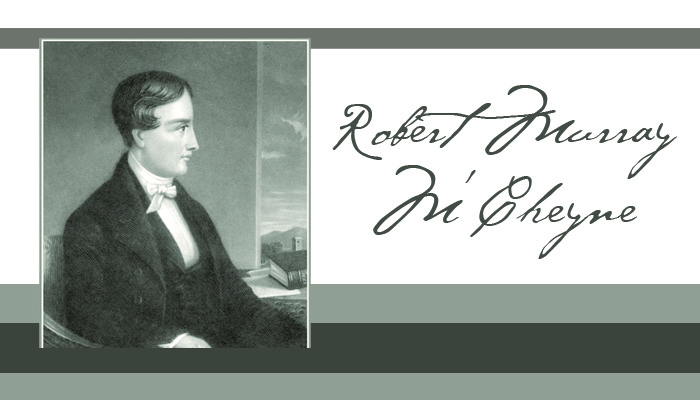Some years ago I heard John Piper recount recount the genesis for his love affair with Jonathan Edwards. He said, “One of my seminary professors suggested to us back in 1970 that we find one great and godly teacher in the history of the church and make him a lifelong companion. That’s what Edwards has become for me. It’s hard to overestimate what he has meant to me theologically and personally in my vision of God and my love for Christ.”
Upon hearing that advice I immediately set about finding a “lifelong companion” from church history.
A Whimsical Purchase
For quite a while it seemed as though Edwards would be my own historical mentor. It all began with George Marsden’s Jonathan Edwards: A Life, a ravishing account that still may be the best biography I’ve ever read. Marsden, for me, was the gateway into further Edwards study—study I found unusually captivating. So many aspects of his life and ministry invigorated my soul: his ruthless devotion to God, warmth in cherishing God’s sweetness and beauty, unmatched theological profundity, and faithful labor in his home. And so it was from 2007-2010 that Edwards was my homeboy.
Yet something happened in the summer of 2010 that shifted my focus from the Northampton man; on a whim I purchased The Memoir and Remains of Robert Murray M’Cheyne by Andrew Bonar. My life has, quite literally, never been the same.
They’d Weep Just Looking at Him
I first came across the name of M’Cheyne in 2007 when I read Martyn Lloyd-Jones Preaching and Preachers. The Doctor said,
You remember what was said of the saintly Robert Murray McCheyne of Scotland in the last century. It is said that when he appeared in the pulpit, even before he had uttered a single word, people would begin to weep silently. Why? Because of this very element of seriousness. The very sight of the man gave the impression that he had come from the presence of god and he was to deliver a message from God to them. That is what had such an effect upon people even before he had opened his mouth. We forget this element at our peril, and at great cost to our listeners.
I thought to myself, “Now that’s saintly seriousness worth pursuing.” At Lloyd-Jones’ prompting, later in Preaching and Preachers, I took up M’Cheyne’s Bible reading plan. While I was, in some way, with M’Cheyne every day, I knew little about his story and ministry. These were the years of Edwards fandom and fervor after all. So I picked up Bonar’s work on Mr. M’Cheyne to inform my ignorance and I dare say my “Lifetime Companion/Historical Mentor” instantaneously shifted from Edwards to the young Scotsman.
I think the best way to describe the quick change was M’Cheyne’s ordinaryness. Edwards is called “the greatest American thinker” for a reason—his intellect is otherworldly. Any personal aspirations to be like Edwards could only get so far because there will ever be anyone like Edwards. M’Cheyne, however, had no extraordinary gifts. Yes, he was a fantastic student who ardently loved poetry and the classics, but such characteristics were hardly unique in Scotland at the time. He was in the gospel ministry for only seven years before he died unseasonably young. So what then does M’Cheyne have to offer? Here’s my best answer: M’Cheyne models ordinary ministry set aflame by extraordinary devotion to Christ.
I want to be like that.
Passion Overflowing
To read M’Cheyne is to read the soul of a man inflamed with love for Christ. His twin passions were evangelism and holiness; not unlike our Savior’s heartbeat. He stoked the flame of love for Christ through earnest commitment to the word and prayer. I’ve yet to hear anyone encounter M’Cheyne without sensing a challenge from his white-hot intensity toward and love for Christ.
In his introduction to Owen’s The Mortification of Sin J.I. Packer recounts how Keswick theology had made him frantic in the pursuit of holiness. “And then (thank God),” Packer writes, “[I] was given an old clergyman’s library, and in it was an uncut set of Owen, and I cut the pages of volume VI more or less at random, and read Owen on mortification—and God used what the old Puritan had written three centuries before to sort me out.”
I can sympathize with the need for spiritual sorting. At key occasions in my life and ministry over the last five years God has used M’Cheyne to sort me out. It’s no overstatement to say that on at least two occasions M’Cheyne saved my ministerial soul.
That’s what a lifelong companion does.
Do you have one?
If so, fantastic. Immerse yourself in that person’s life until it’s hard to separate his thoughts from your own. If you don’t have a historical mentor, choose wisely . . . and patiently. It may take you years to find one, but you’ll know it when he or she arrives, for they will likely sort you out with power and ease. That’s what friends are for.

